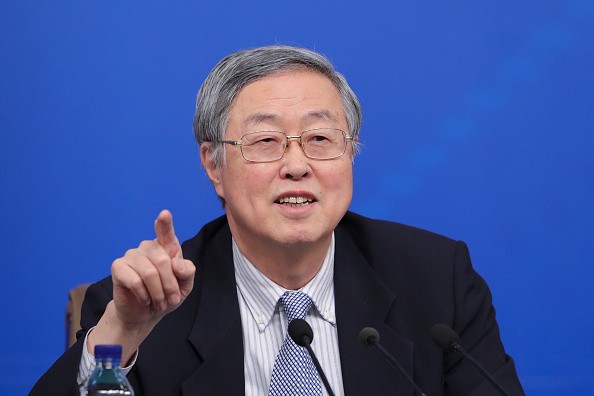China's monetary policies are expected to become tougher this year, but experts say a liquidity crunch is unlikely for the world's second-largest economy.
Central banks around the world should no longer pursue loose monetary policies, Zhou Xiaochuan, governor of China's central bank, the People's Bank of China (PBC), told delegates at the Boao Forum for Asia Annual Conference at southern China's Hainan Province on Sunday.
However, Zhou noted that the retreat from easy-money policies will take time and that the speed of the process may vary from one place to another.
Li Daokui, director of the China in the World Economy at Tsinghua University, said that in the case of the United States, the pace appears to be moving past.
U.S. monetary policy is returning to normal, Li said at the Boao Forum on Sunday.
The Federal Reserve Board hiked its benchmark interest rate for the second time in three months on March 15 amid increasing confidence in U.S. economic growth. Two more increases are expected later this year.
Xu Gao, chief economist at China Everbright Securities, warned of the drawbacks of lax monetary policies.
"Loose monetary policy can stimulate an economy in the short term, but it will have side effects, and it has limited ability to achieve genuine structural economic reform," Xu told the Global Times.
These factors may partially explain the signs of a shift in China's monetary policy. In February, the PBC raised the costs of seven-, 14-day and 28-day reverse repurchase agreements by 10 basis points, according to the report from the Global Times.
The PBC also hiked the rates on its standing lending facility (SLF) short-term loans by up to 35 basis points.
China has been tightening liquidity this year to avoid asset bubbles and curb risks of inflation, Xu said
The country aims to keep consumer-price inflation under 3 percent for 2017, unchanged from the previous year's target, according to a government work report delivered by Premier Li Keqiang earlier this month.
Xu said that China's economic recovery can serve as a foundation for the PBC to tighten liquidity.
China's economic expansion is facing pressure from recent domestic reforms and overcapacity reduction, but economic growth is expected to retain its momentum.
In January, the IMF upgraded its forecast for China's GDP growth this year to 6.5 percent, 0.3 percent higher from its October projection. Its forecast for GDP growth in the U.S. is 2.3 percent.
The Shanghai Interbank Offered Rate (Shibor), a key barometer of liquidity in China's financial system, also indicated tighter liquidity. On Tuesday, the one- and three-month Shibor rates rose to 4.3558 percent and 4.3846 percent, respectively, according to official data. Both figures were at the highest level since April 2015.
However, there is no need to worry about a potential cash crunch as the PBC promised to maintain a neutral and stable monetary policy, said Xu.
Both Xu and Li said China's monetary policy is still being kept fairly loose to support domestic economic growth and structural reform.
Li, however, expressed worries over the potential blowback from the U.S.
"We are also very concerned over the spillover of U.S. monetary policy that may impact the capital outflows [and then add pressure on domestic credit]," he said.



























